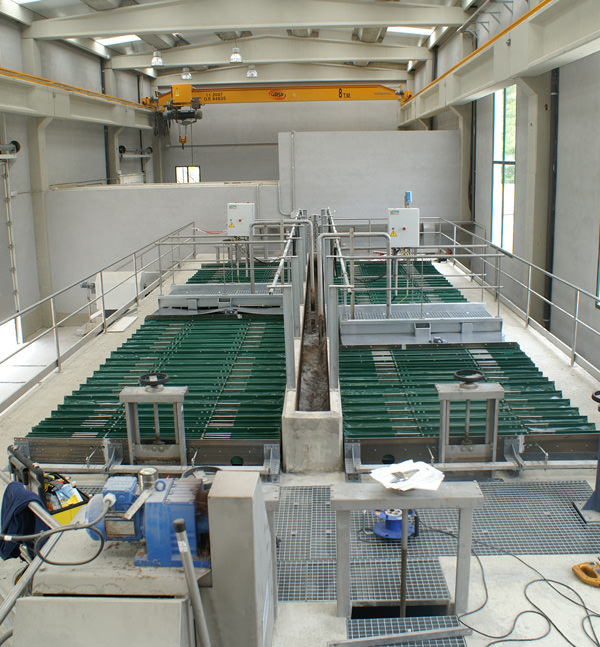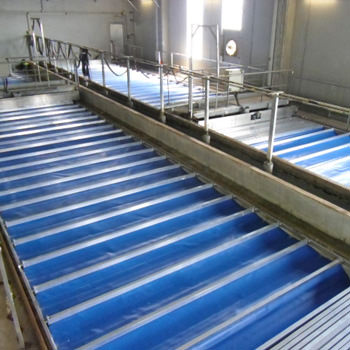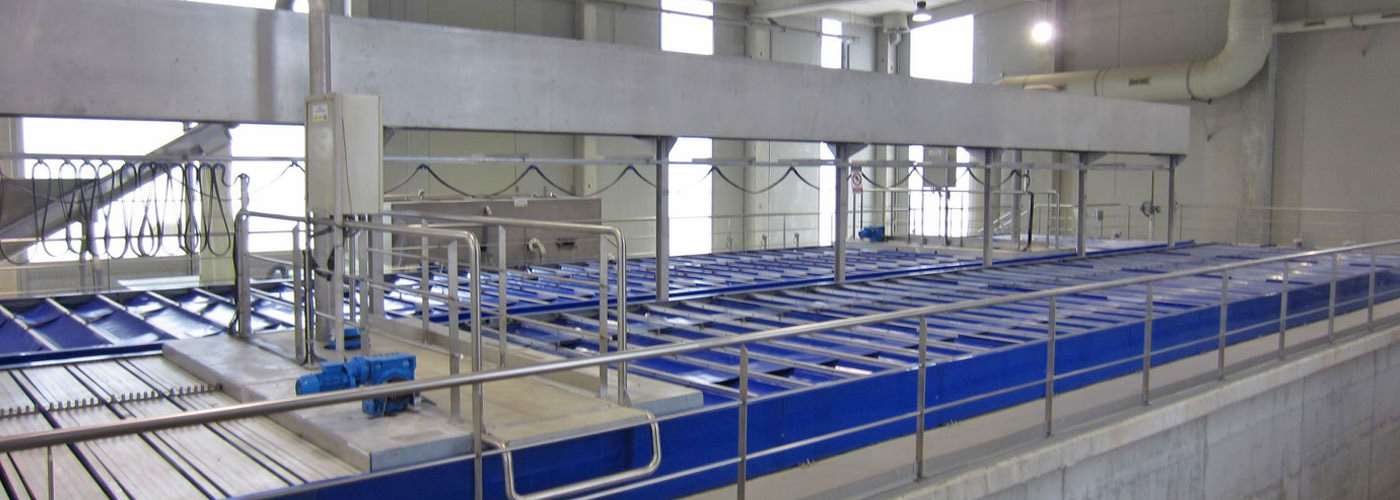The extreme conditions in a WWTP don’t allow for improvisation: the bellows must be built to last.
Wastewater treatment plants (WWTPs) present one of the most demanding industrial environments for mechanical components. Constant humidity, chemical mists, corrosive splashes, and varying temperatures create a hostile environment for any conventional protection system.
Therefore, in these types of facilities, the production of bellows and machine protection elements must be based on strict technical criteria, not a standard catalog.
What makes a WWTP bellows different?
At first glance, a WWTP bellows may look the same as any other industrial bellows. But their durability depends on three key factors:
- Specific materials to resist chemical agents, acids, grease, and steam.
- Technical design that withstands constant contraction and expansion due to hydraulic or pneumatic movements.
- Finishes that are resistant to intensive washing and cleaning cycles with aggressive products.
A generic bellows can last for weeks. One designed for WWTPs can last for years without compromising protection.

Main risks in a WWTP
1. Constant chemical attack
- Treated water contains acids, bases, and residues that degrade conventional plastics.
2. Condensation and permanent humidity
- A humid environment accelerates the growth of mold, material swelling, and loss of flexibility.
3. Extreme thermal cycles
- Areas near motors, process valves, or reactors experience heat spikes and sudden cooling.
4. Low-maintenance environments
- The location of many actuators prevents frequent access. The bellows must hold up without intervention.

What technical solutions do we use at Lluis Creus?
Our experience in producing bellows for WWTPs is based on adapting each solution to the specific needs of the plant. Some common technical solutions include:
✔️ Technical materials
- Reinforced silicone for high chemical resistance.
- Polyurethane with antifungal treatment.
- Industrial-grade PVC-coated polyester fabrics.
✔️ Closure systems
- Watertight zippers for easy maintenance.
- Stainless steel cable ties for high-vibration areas.
- Industrial-strength Velcro fastening systems for environments with limited access.
- ✔️ Folds and shapes
- Fold design adapted to the actual movement of the actuator.
- Flat, rectangular, or cylindrical bellows depending on assembly needs.
Why choose custom production?
Because every WWTP is different: location, processes, chemicals, and facility design. Only a technical supplier can ensure that protection is not a patch, but a long-lasting and efficient solution.
Key advantages:
- Fewer replacement parts per year.
- Fewer production downtimes.
- Enhanced safety for technical personnel.
- Compliance with industrial safety regulations.

Conclusion
n a WWTP, the bellows cannot be a generic element. It must be a precisely designed barrier. At Lluis Creus, we develop specific technical solutions for plants that cannot afford failure.

